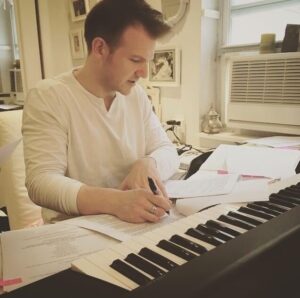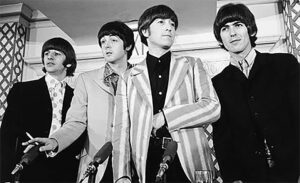by Mary Ellen Bernard
In The New York Times (Oct. 13, 2013) Joanne Lipman wrote about the correlation between musical training and success in areas beyond music. She queried a number of high achievers in non-musical fields about this connection and shared their responses in her op ed.
The idea that musical training enhances other abilities was certainly no surprise to me. The number of iconic musicians who are also visual artists is fairly common knowledge: Joni Mitchell, Tony Bennett, David Byrne, to name just a few. And among my musician friends are a number of excellent cooks, accessory designers, computer programmers, and entrepreneurs.
What impressed me about Ms. Lipman’s findings was the variety of cognitive, social, and business skills the respondees attributed to their musical work, and how those skills specifically grew out of the demands and mechanics of playing music. For instance, ad executive and cellist Steve Hayden zeroed in on “collaboration.” By now, a generic buzzword overused by team-building gurus, Hayden described it as: “when to solo and when to follow.” That certainly distills “collaboration” down to its essence. It’s what playing together is all about, whether you’re on stage or on a team.
Venture capitalist (also bassist and guitarist) Roger McNamee cited obsessiveness and “the almost desperate need to dive deep” as a common trait among both great musicians and other successful people. Psychology has made a phobia of this particular characteristic. Yet, where would we be without the relentless drive towards perfection that brought us Brahm’s piano concertos, the light bulb, the iPhone? How do you get to Carnegie Hall, after all? There’s only one way, my friend. And the road to that hallowed stage is littered with those who hoped to find a shortcut.
And how about this heady concept? The ability to “focus on the past and the present simultaneously.” A seeming impossibility, musicians do this all the time, subconsciously attuned to what they are playing at the moment and where they are going. Surely, Congress would benefit from this same exercise.
The rewards of learning and playing music are plentiful. And the fact that music is considered a luxury, and not an absolute necessity, in our schools and our lives is … well, don’t get me started. For now, let’s just say that we’re on our own to discover the long-term practical benefits that music can deliver along with its immediate pleasures.
So, stop what you’re doing, right now. Haul out the guitar; dust off the keyboard; pick up a ukulele, a tambourine or a shaker; or turn up the volume on your favorite show tunes. And make some noise, preferably with a few other people. It’ll be a refreshing break at the very least. And you never know what kind of great ideas it may inspire.
Read the full New York Times opinion piece by Joanne Lipman. Joanne Lipman is co-author with Melanie Kupchynsky of the book Strings Attached: One Tough Teacher and the Gift of Great Expectations.







